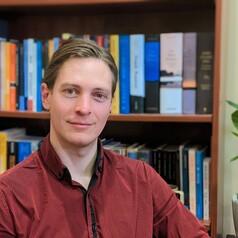
Adam Piovarchy
Research Associate, Institute for Ethics and Society, University of Notre Dame Australia
I am a Research Fellow at The University of Notre Dame, Australia. My research is largely at the intersection of psychology and philosophy, and examines topics such as moral responsibility, blame, fault, excuses, social pressure, and social norms.
I have taught units in bioethics, neuroethics, moral psychology, political theory and critical thinking.
Less ![]()

Adam Quinn
Associate Professor in American and International Politics, University of Birmingham
Less ![]()
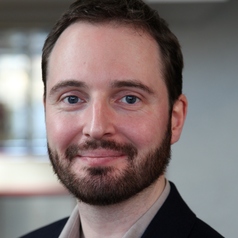
Adam Quinn
Senior Lecturer in International Politics at the Dept of Political Science and Interational Studies and the Institute for Conflict, Cooperation and Security, University of Birmingham.
Leader of an ESRC seminar series on The Future of American Power, running 2013-14.
Former convenor of the US Foreign Policy group of the British International Studies Association, 2008-12.
I blog at www.beingrealistic.com, and you can follow me on Twitter @adamjamesquinn or Facebook, https://www.facebook.com/#!/adam.quinn.161
My work profile is at: http://www.birmingham.ac.uk/staff/profiles/government-society/quinn-adam.aspx
Less ![]()

Adam Smith2
Senior Consultant, Universal Impact
Adam comes to Universal Impact with more than 10 years of editorial experience. He has worked as journalist for the BBC and as news editor at The Argus in Brighton. His background also includes work for press agencies and in communications. Adam studied at the University of Birmingham before getting a postgraduate qualification from the Cardiff School of Journalism, Media and Culture.
Less ![]()
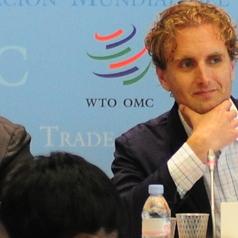
Adam Sneyd
Associate Professor, Political Science, University of Guelph
Adam Sneyd is an Associate Professor with the Department of Political Science at the University of Guelph. He is the co-author of Commodity Politics: Contesting Responsibility in Cameroon (McGill-Queen's 2022), and the author of Politics Rules: Power Globalization and Development (Fernwood Publishing and Practical Action Publishing, 2019), Cotton (Polity Press, 2016) and Governing Cotton: Globalization and Poverty in Africa (Palgrave MacMillan, 2011). Adam's research focuses on the global politics of commodities, and has emphasized food, resource and development challenges in African contexts.
Less ![]()


Adam Toomes
Ph.D. student at the Invasion Science & Wildlife Ecology Group, University of Adelaide
As part of the Centre for Invasive Species Solutions (CISS), my research investigates patterns of the illegal and unsustainable trade of wildlife products in and out of Australia. By combining a range of analytical techniques, I aim to effectively monitor and reduce illegal harvesting, exotic incursions and online wildlife trade. I have completed a Bachelor of Science as well as Honours First Class at The University of Adelaide and I am currently a member of The Invasion Science & Wildlife Ecology Group.
Less ![]()

Adam Zeman
Professor of Cognitive and Behavioural Neurology, University of Exeter
I trained in Medicine at Oxford University Medical School, after a first degree in Philosophy and Psychology. I was a consultant neurologist in Edinburgh, from 1996, and have been Professor of Neurology at Exeter University Medical School from 2005. My specialised clinical work is in cognitive and behavioural neurology, including neurological disorders of sleep. My research interests include amnesia associated with epilepsy (http://projects.exeter.ac.uk/time/) and disorders of visual imagery (http://medicine.exeter.ac.uk/research/neuroscience/theeyesmind/). I have an active background interest in the science and philosophy of consciousness, publishing several wide-ranging reviews of the field and an accessible introduction to the subject, intended for a general readership (Consciousness: a user’s guide, Yale University Press, 2002). I have written a study of the brain for the general reader, A Portrait of the Brain (Yale, 2008), edited Ethical Dilemmas in Neurology (W.B.Saunders, 2000) with Linda Emanuel and Epilepsy and Memory (OUP, 2012) with Marilyn Jones-Gotman and Narinder Kapur. I was Chairman of the British Neuropsychiatry Association from 2007-2011. I have recently moved into a freelance phase of life as an expert witness and independent researcher based in Edinburgh, where I am an Honorary Fellow at the Centre for Clinical Brain Sciences. A new book on the science of imagination, The Shape of Things Unseen, will be published by Bloomsbury in January 2025, and I am currently embarking on a new wave of work on ‘extreme imagery’.
Less ![]()

Adam "Ben" Rohrlach
I am a researcher and lecturer in the School of Computer and Mathematical Sciences at the University of Adelaide, and a researcher at the Max Planck Institute for Evolutionary Anthropology. My research focuses on the analysis of ancient human DNA, specialising in prehistoric population genetics, Y-chromosomal history, detecting genetic diseases in ancient populations and developing new methods for analysing ancient DNA.
Less ![]()

Adam B. Watts
Research Associate in galaxy evolution, The University of Western Australia
Adam is a Research Associate at the International Centre for Radio Astronomy Research (ICRAR), working from the University of Western Australia node. His research uses observations from the world's largest telescopes, which span the entire electromagnetic spectrum, to understand the star formation process in galaxies.
Less ![]()
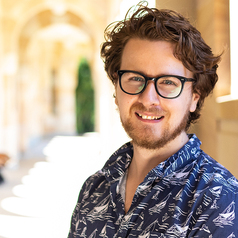
Adam D Hines
Research fellow, Queensland University of Technology
Dr Adam Hines is a Research Fellow at the QUT Centre for Robotics with Dr Tobias Fischer and Prof. Michael Milford. He received his PhD in neuroscience from The University of Queensland in 2023 with undergraduate degrees in Medical Science with 1st class honours from the University of New South Wales (2013-2016). In 2022, he was the recipient of a prestigious and competitive Fulbright Scholarship where he undertook a 6 month research programme with Prof. Roderic Eckenhoff at the University of Pennsylvania in Philadelphia, USA.
Dr Hines’ current research focus is on bio-inspired robotics for autonomous navigation and localisation systems, taking a multi-disciplinary approach by combining neuroscience and artificial intelligence. As a part of his research, he has been involved in multiple industry and defence projects including Intel Neuromorphic Research Community (INRC) and the Australia-US Multidisciplinary University Research Initiative (AUSMURI) program with the Defence Science and Technology Group (DSTG).
Adam has a deep commitment to the broader research community through his work with the Australasian Neuroscience Society’s Student Body Committee as Deputy Chair, the Early-Mid Career Brain Sciences Steering Committee, and as Associate Faculty with H1 Connect.
In addition to this, Dr Hines’ has received numerous awards for presentations and communications at national conferences including winning a 3-Minute Thesis (3MT) competition, a Student Presentation award, and a Best Image in Neuroscience competition.
Less ![]()
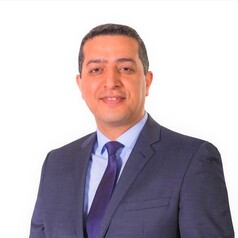
Adam G. Arian
Lecturer (Accounting & Finance), Australian Catholic University
As a seasoned academic and accomplished professional in accounting, I hold a CPA, CA, and a Ph.D. in Accounting and Finance from the University of Southern Queensland. Currently, I'm a Lecturer and researcher in Accounting and Finance at the Australian Catholic University (ACU) also affiliated with the University of Southern Queensland (UniSQ). With over a decade of experience blending corporate and academic insights, I bring a unique perspective to my teaching and research.
My teaching approach involves dynamic pedagogical techniques, fostering engaging learning environments for both undergraduate and postgraduate students.
In addition to my academic roles, I've made significant contributions to esteemed accounting journals and am actively involved in ongoing research projects. I look forward to contributing evidence-based perspectives on accounting, finance, and business topics for "The Conversation."
Less ![]()

Adam G. Lichtenheld
Executive Director of the Immigration Policy Lab, Stanford University
Adam received his PhD from the University of California, Berkeley, and he is an affiliated scholar at the Institute for the Study of International Migration at Georgetown University. He has published various studies on forced displacement, conflict, and evidence-based interventions in journals such as International Organization, the British Journal of Political Science, Political Geography, and Economics & Politics, along with media outlets like the Washington Post and Foreign Policy. Prior to joining IPL, Adam led research teams and projects for the humanitarian NGO Mercy Corps; served as a senior conflict advisor for the World Bank; taught courses on migration and conflict at Berkeley and Yale University; and worked as a research analyst for USAID’s Office of Transition Initiatives in Syria. His approach to research, leadership, and management is informed by his deep policy engagement and close collaboration with local researchers, non-profits, and displaced populations in more than a dozen countries.
Less ![]()

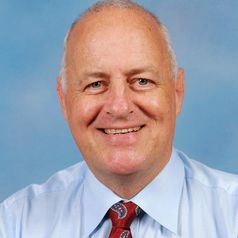
Adam J. Taylor
Melbourne Graduate School of Education, The University of Melbourne
Adam Taylor is a Lecturer in Education at the Melbourne Graduate School of Education. He has over 25 years experience as a senior school and system leader in the Australian non-government schooling sector.
Less ![]()
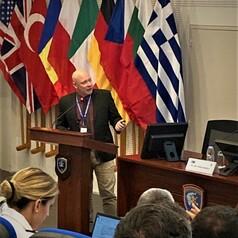
Adam James Fenton
Associate Professor (Research), Coventry University
Dr. Adam James Fenton is a Marie Sklodowska-Curie Research Fellow at Coventry University’s Centre for Trust, Peace and Social Relations (CTPSR). His current research project STRAITSECURITY: Hybrid threats to Maritime Security, is an assessment of cyber and cyber-physical vulnerabilities in the world's busiest shipping lanes, and received funding from the European Union's Horizon 2020 research and innovation program under a MSCA research grant. He has published multiple articles about maritime security, international law, piracy, terrorism and maritime technology. In addition to being admitted to practice as a barrister and solicitor in Australia, he has worked in border protection as a Fisheries Officer in Foreign Compliance Operations with the Australian Fisheries Management Authority.
Less ![]()

Adam R Houston
Adjunct Professor, Faculty of Law, L’Université d’Ottawa/University of Ottawa
Adam R. Houston is a Canadian health & human rights advocate, specializing in access to medicines and the role of law in the response to infectious disease. He has worked with organizations across Canada and around the world on a wide range of issues, including global COVID-19 vaccine (in)equity, reconciling disparate human rights approaches towards HIV and tuberculosis, and United Nations accountability for the Haitian cholera epidemic. By day, he is the Medical Policy & Advocacy Advisor for Médecins sans frontières/Doctors Without Borders (MSF) Canada.
Less ![]()

Adan Jerreat-Poole
Assistant Professor of Communication Arts, University of Waterloo
Adan is a queer/trans/disabled scholar and white settler living on treaty territory belonging to the Six Nations of the Grand River and the traditional home of the Neutral, Anishinaabe, and Haudenosaunee peoples. Adan works at the intersection of queer feminisms, disability justice, and digital media, with specializations in video game studies, critical design, automedia, and digital storytelling. Adan is also a creative writer and the author of The Girl of Hawthorn and Glass (2020) and The Boi of Feather and Steel (2021), published with Dundurn Press.
Less ![]()

Adeagbo Oluwafemi Atanda
Assistant Professor , University of Iowa
Dr. Adeagbo is an applied social scientist with extensive research experience working collaboratively with local and international institutions on HIV-related research in the United States, South Africa, Nigeria, and most recently, Zambia. He has conducted research with adolescents, youth, and older people. He has explored the impact of class, race, gender, education, violence, substance use, employment status, and other related factors on individual health over time. The guiding principle of his research is to reduce the adverse health and social impact of diseases while advancing population health, especially in resource-constrained settings. His research activities have focused on global health, rural health, stigma reduction interventions, telehealth interventions, HIV treatment and prevention, qualitative research method, sexual and gender minority health, implementation science and evaluation of complex interventions. Recently, Dr. Adeagbo has developed additional research interest in bioethics and non-communicable diseases (NCDs).
Less ![]()
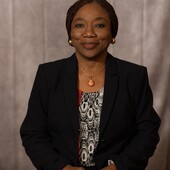

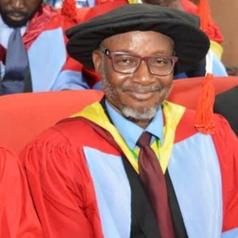
Adediran Kayode Ademiju-Bepo
Professor of Drama, Theatre and Film Studies, University of Jos
I worked as a journalist with the defunct Sketch Press Limited, Ibadan between 1993 and 2001 as production editor while pursuing my postgraduate studies. Moved over to Fountain Newspapers Limited, Ado-Ekiti as news editor and bureau chief, before leaving in 2002 to complete my PhD programme at the University of Ibadan. I eventually bagged the PhD in 2005 while working with the Nigerian Film Corporation, NFC, Jos, Nigeria.
I left the NFC in 2010 as head of industry support services and registrar, Motion Picture Council of Nigeria, MOPICON, working on the agency for the professionalisation of the burgeoning film Industry, and joined the University of Jos as a lecturer. I was announced Professor of Theatre and Film Studies in March 2021 with effect from 1 October 2019. I run a book publishing outfit, Dynastygold Impact Publishers, as a division of Dynastygold Global Impact Communications.
Less ![]()
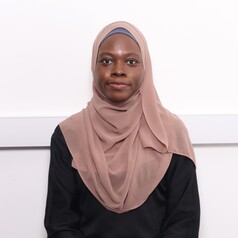
Adefolatomiwa Toye
PhD Candidate, School of Architecture, University of Liverpool
Adefola Toye is a PhD student at the University of Liverpool’s School of Architecture. She completed a bachelor’s degree in Architecture and a master's in Environmental Design at the University of Lagos. Adefola is a recipient of the 2020 A3-ARCHNET Prize for Writing on African Architectures and a 2021 Student Fellow of the Society of Architectural Historians (SAH). Her PhD research in collaboration with The National Archives, London, focuses on the tropical modernist architecture of Nigeria’s first universities and its role in the development and identity of independent Nigeria.
Less ![]()
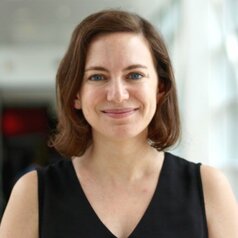
Adèle Cassola
Research Director - Public Health Institutions, Global Strategy Lab, York University, Canada
Adèle Cassola is the Research Director of the Public Health Institutions program at the Global Strategy Lab at York University, where she leads research on the roles of senior public health officials, the politics of scientific evidence in public health policymaking, and public health governance more generally. She is the co-editor of the recent book Integrating Science and Politics for Public Health. Her work has been published in interdisciplinary journals including Policy & Politics, Health Policy, the International Journal of Human Rights, Urban Studies, and the Journal of International and Comparative Social Policy. Adèle has led large-scale, globally comparative policy research on equity in legal rights protection with the World Policy Analysis Center at the University of California, Los Angeles and the Institute for Health and Social Policy at McGill University, and has conducted community-based research with civil society and government agencies in Toronto and New York City.
Less ![]()
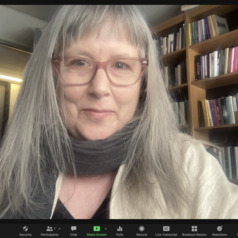
Adele Perry
Director, Centre for Human Rights Research and Distinguished Professor, History and Women's and Gender Studies, University of Manitoba
Adele Perry is a settler historian who has been based at the University of Manitoba since 2000.
Less ![]()

Adelene Buckland
Reader in Nineteenth-Century Literature, King's College London
Dr Adelene Buckland studied English at the Universities of Birmingham and Oxford, before becoming a postdoctoral researcher at the University of Cambridge.
Her first monograph, Novel Science: Fiction and the Invention of Nineteenth-Century Geology (Chicago: University of Chicago Press, 2013) won the Marc-Auguste Pictet Prize for the History of Science, was shortlisted for the British Society for Literature and Science annual book prize, and was awarded an Honorable Mention in the 2013 Sonya Rudikoff prize for best book in Victorian studies, awarded by the North American Victorian Studies Association.
She began teaching at King's in September 2012, and is currently working on a monograph entitled Baby Machines: Mothers and Love in the Electromechanical Age, 1840-1940.
Less ![]()

Adelina Comas-Herrera
Assistant Professorial Research Fellow, Care Policy and Evaluation Centre (CPEC), London School of Economics and Political Science
Adelina Comas-Herrera is the director of the new Global Observatory of Long-Term Care based at the Care Policy and Evaluation Centre at the London School of Economics. She is currently principal investigator of a project on what lessons the English social care system can learn from the COVID experiences of other countries, and one strengthening responses to dementia in England, with a specific focus on care inequalitites.
During the COVID pandemic she led the LTCcovid.org platform, an initiative linked to International Long-Term Care Policy Network that shares evidence and resources to mitigate the impact of COVID-19 amongst those who use and provide long-term care. She was a regular attendee of the SAGE Social Care Working Group meetings from May 2021.
Previously she was co-lead of the Strengthening Responses to Dementia in Developing Countries (STRiDE) project. Funded by the Research Councils UK Global Challenges Research Fund, STRiDE was a multi-national project covering Brazil, India, Indonesia, Jamaica, Kenya, Mexico, and South Africa. The project aimed to build capacity to generate research that supports the development of policy responses to dementia, with related projects also under way in Hong Kong and New Zealand.
Her main research interests are economic aspects of care, treatment and support of people with dementia, and long-term care financing, both in the UK and globally. She has extensive experience in developing simulation models of the future resources required to address long-term care needs and needs arising from dementia.
She has a background in Economics (BA and MSc, Universitat Pompeu Fabra) and is currently Assistant Professorial Research Fellow at the Care Policy and Evaluation Centre at the London School of Economics and Political Science.
She has been a consultant for the Inter-American Development Bank’s ageing and long-term care programme and for the World Health Organisation’s Department of Ageing and Life Course, preparing a country self-assessment tool for long-term care. She was a co-author of the 2016 and 2019 editions of the World Alzheimer Report.
Less ![]()

Adeline Morez
Post-doctorate researcher, Université Toulouse III - Paul Sabatier, visiting lecturer, Liverpool John Moores University
Adeline Morez is a biological anthropologist who specialises in the study of population genetics. After a Master’s degree in Ecology and Evolution, she studied ancient DNA to directly infer past human movements, focusing on Africa and Europe for her PhD (Liverpool John Moores University, UK). She is now a post-doctoral researcher at the EDB laboratory (CNRS, France). Her main interest is understanding how environment and culture have shaped human genetic diversity – through isolation, gene flow and selection – in Papua New Guinea and the islands of Southeast Asia.
Less ![]()
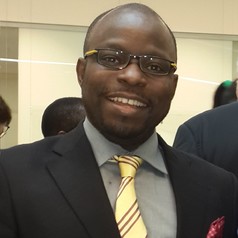
Ademola Adenle
Fellow at the School of Global Environmental Sustainability, Colorado State University
Dr. Ademola Adenle was a Research Fellow and Principal Investigator at the United Nations University, Headquarters, Japan. Dr. Adenle specializes in science and technology in addressing sustainable development challenges including climate change, food insecurity, energy and health problems. Dr. Adenle is currently affliated with the School of Global Environmental Sustainability, Colorado State University, USA
Less ![]()

Ademola Adesokan
Postdoctoral Researcher in Computer Science, Missouri University of Science and Technology
Less ![]()
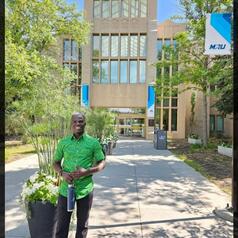
Ademola Adesola
Assistant Professor, Mount Royal University
Ademola is an assistant professor, postcolonial literatures, in the Department of English, Languages and Cultures. Prior to his appointment at MRU Ademola taught literature at the International College of Manitoba, University of Manitoba. He has worked in Nigeria as a journalist on the Arts Desk of The Nation Newspapers and as a lecturer at Kings University, Nigeria.
Ademola’s teaching and research interests are African/Black diaspora literatures, postcolonial literatures, war and literature, and popular culture. His current research explores literary representations of children at war (aka child soldiers). His articles, book chapters, and reviews have appeared in different publications. His article, “A Tale of Two Fighters: Images of Child Soldiers in Jewish and African Child Soldier Narratives,” recently appeared in Journal of the African Literature Association, vol. 16, no. 1, 2022.
He is a recipient of several awards, including the Berdie and Irvin Cohen Scholarship in Peace and Conflict Studies, and Dr. Vernon B. Rhodenizer Graduate Scholarship for his doctoral dissertation at the University of Manitoba. Ademola is a Fellow of the Ife Institute of Advanced Studies.
Biking and playing recreational tennis are some of Ademola’s cherished pastimes.
Less ![]()

Adenike Akinsemolu
Vanguard Fellow, University of Birmingham
Adenike Akinsemolu is a Vanguard Fellow at the University of Birmingham, a Senior Research Fellow at Afe Babalola University, and the founder of the Green Institute. She is an expert in the field of environmental sustainability with over 10 years of experience in education and research. Adenike is a National Geographic Educator and a member of the United Nations Sustainable Development Solutions Network. She is committed to finding bold and effective solutions to complex challenges, including the fight against climate change. Adenike has a deep passion for promoting sustainable practices and solutions for organisations and communities, and she has a strong track record of success in developing and implementing sustainable initiatives. In addition to her work as an educator and researcher, Adenike is also the author of several books on sustainability, including "Principles of Green and Sustainability Science (Springer 2020)," "Biological Science, A Concise Introduction (The Green Institute, 2022)," and "An Introduction to Green Education (National Geographic, 2022)." She is always looking for opportunities to collaborate and share her knowledge and expertise with others who are committed to protecting the environment. She has been recognized as one of the Top 100 Conservation Leaders in Africa by the WWF. She is also an Associate Fellow of the Royal Commonwealth Society.
Less ![]()

Adewumi I. Badiora
Senior Lecturer, Department of Urban and Regional Planning, Olabisi Onabanjo University
Adewumi I. Badiora is a senior lecturer in urban and regional planning at Olabisi Onabanjo University, Ago-Iwoye, Nigeria.
He has a PhD in urban and regional planning from the Obafemi Awolowo University, Ile-Ife. Badiora's research specialisation is urban and community safety. His current research project is on situational crime prevention.
He was an expert consultant on the National Survey on Election Security Threats in Nigeria (2018-2019) and National Survey on Emerging Security Challenges in Nigeria (2021-2022) and facilitated Urban Studies Foundation (USF) knowledge mobilisation on securing urban spaces.
He currently leads the African Cities Research Consortium (ACRC) safety and security domain research in Lagos.
His research focuses on creating safer, more sustainable and healthy cities. Spatial statistical methods underline his research, which concentrates on the geography of crime and fear in urban and rural built environment, crime prevention through environmental design (CPTED), corruption in planning practice, governance, security, and distributive justice.
Badiora consults on crime dynamics and prevention.
Less ![]()
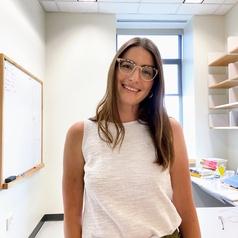
Adi Foord
Assistant Professor of Astronomy and Astrophysics, University of Maryland, Baltimore County
Before joining the UMBC Physics Department, Dr. Foord was a Porat Postdoctoral Fellow at Stanford University, working at the Kavli Institute for Particle Astrophysics and Cosmology (KIPAC). While at KIPAC, Dr. Foord worked with Chandra and XMM-Newton to measure the X-ray activity of interacting supermassive black holes. She also used the Hubble Space Telescope, Sloan Digital Sky Survey, and WISE Infrared telescope to learn more about how the environments of supermassive black holes impact their evolution and growth.
Although there is now broad consensus that active galactic nuclei (AGN) play important roles in the evolution of their surroundings, the processes that trigger the various forms of AGN activity remain unclear. Major galaxy mergers have been predicted to induce AGN, however, whether or not galaxy-galaxy interactions trigger accretion onto SMBHs remains a topic of debate. Dr. Foord’s research focuses on observational flags of merger-driven SMBH growth, or dual AGN; they are signposts of ongoing galaxy formation and represent rare instances where the link between environment and black hole growth (or, lack thereof) can be probed. As an observational astronomer, Dr. Foord uses X-ray observations (Chandra, XMM-Newton, Swift) to observe accreting supermassive black holes, and connects their X-ray activity to the emission of their host galaxies (in optical and IR, with telescopes such as SDSS, HST, and WISE). Generally, Dr. Foord is interested in high-resolution X-ray astronomy and enjoys searching for evidence of extended X-ray emission around accreting supermassive black holes to better understand their evolution across cosmic time.
Less ![]()

Adit Ginde
Professor of Emergency Medicine, University of Colorado Anschutz Medical Campus
Less ![]()
- Market Data





















